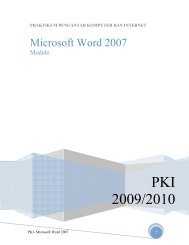Software Engineering for Internet Applications - Student Community
Software Engineering for Internet Applications - Student Community
Software Engineering for Internet Applications - Student Community
You also want an ePaper? Increase the reach of your titles
YUMPU automatically turns print PDFs into web optimized ePapers that Google loves.
Chapter 9Adding Mobile Users To Your <strong>Community</strong>Among the principles of sustainable online community in the Planningchapter of this textbook, notice that the following are not mentioned:7. means of waiting <strong>for</strong> machines to boot up8. means of chaining users to their desks9. means of producing repetitive strain injuryThough the alternatives vary in popularity from country to country aswe write this chapter (March 2003), there is no reason to believe thatdesktop computer programs such as Netscape Navigator andMicrosoft <strong>Internet</strong> Explorer are the best way of participating in onlinecommunities.In this chapter you'll learn how to open your community to usersconnecting from small mobile devices.9.1 Be the UserIf you were to close your eyes and visualize a person participating inyour community, what would it look like? The users you'veconsidered thus far would probably be sitting at a desk with theirhands keyboarding 60 words per minute and their gazes set upon an20-inch screen. By contrast, a mobile user might be walking along abusy street or looking down from a mountain top. Their screen will bea few inches across, and they may only be able to type five or tenwords per minute. What kinds of content and means of participationwill best suit this class of users?9.2 Exercise 1Either using your phone or one of the emulators discussed later inthis chapter, use the mobile <strong>Internet</strong> toFor each task, write down how long it takes you to accomplish thetask. Then repeat the tasks with a desktop HTML browser and writedown how long each task takes.9.3 Exercise 2Come up with a list two or three services from your learningcommunity that will be valuable to mobile users. You may find thefollowing guidelines useful:• Timeliness. A community is sustained by the activeparticipation of its members. Though the members will oftenbe separated in time, anyone who has participated in aheated bulletin board debate, an online auction, or a chatsession can appreciate the value of timely interaction.Mobile browsers are particularly well suited to this type ofinteraction because they allow the user to stay connected ina wide variety of settings.• Brevity. Users with small screens will have a difficult timereceiving, reading, and entering large amounts of content.• Native applications. Mobile browsers are commonlybundled with cellular telephones. Until phone companiesprovide General Packet Radio Service (GPRS) in yourusers' region, it is impossible to deliver an application thatsimultaneously uses voice and hypertext. However, it ispossible to produce a hypertext document that providesone-click dialing to a publisher-specified phone number.9.4 StandardsThough the bits may be transported through a proprietary network,anyone can can serve content to mobile devices with a standard Webserver:174• find the weather <strong>for</strong>ecast <strong>for</strong> your city• get a stock quote <strong>for</strong> IBM• look up "ineluctable" in the dictionary• order a book from amazon.com (at least up to the finalcheckout page)• visit www.photo.net and find the latest question that hasbeen askedAs illustrated above, the cell phone connects to your server throughthe service provider's wireless network. Depending on the phone andnetwork, the "Wireless Network" cloud may contain standard <strong>Internet</strong>175


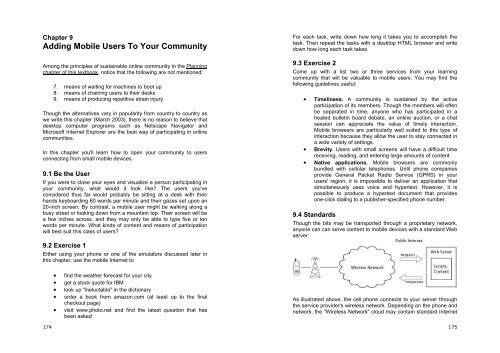

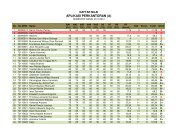


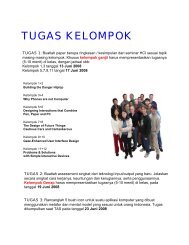
![Slide Kuliah PBO [1]](https://img.yumpu.com/50749096/1/190x245/slide-kuliah-pbo-1.jpg?quality=85)
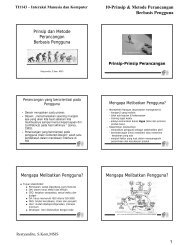
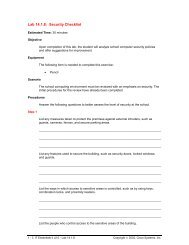

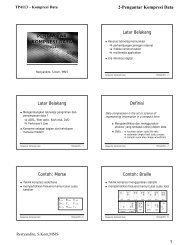
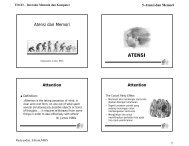
![Slide Kuliah PBO [1]](https://img.yumpu.com/49268027/1/190x245/slide-kuliah-pbo-1.jpg?quality=85)

